Clutch’s Fraud Monitoring Tool detects possible fraudulent accounts. Identifying these accounts helps catch fraudulent activity that is negatively impacting your brand. It’s important to note that Possible Fraudulent Accounts ≠ Fraudulent Accounts. The Fraud Monitoring Tool simply looks for things that might be suspicious, so your brand can investigate.
You can follow the steps below to learn how to review a possible fraudulent account.
Step 1
1.1 Navigate to the Segmentation section.
1.2 Find the Fraud Monitoring section in the left hand navigation menu. Click on it.
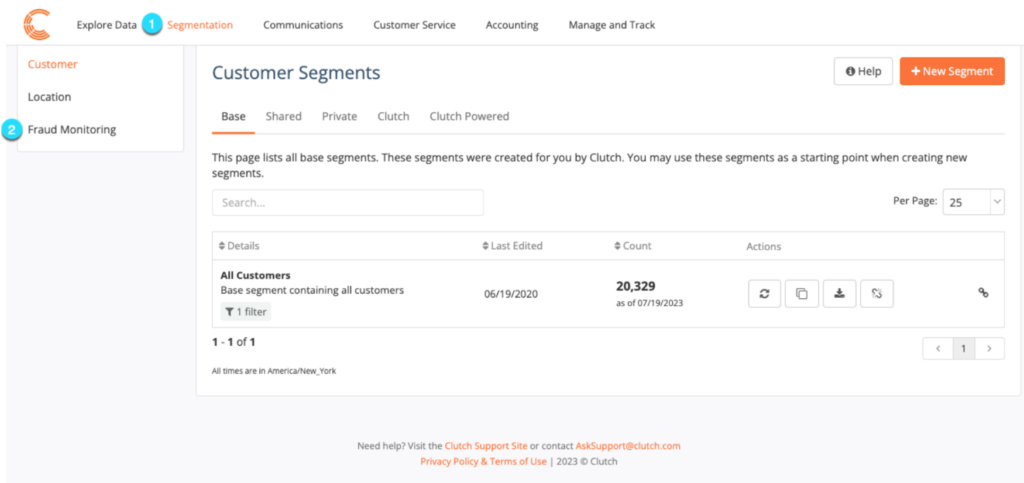
Step 2
You’ll now be within the Possible Fraud Monitoring Tool. Here, you’ll be able to view a list of accounts that are considered Possible Fraudulent Accounts within the Review tab. You’ll also be able to view previously reviewed accounts in the History tab, if desired.
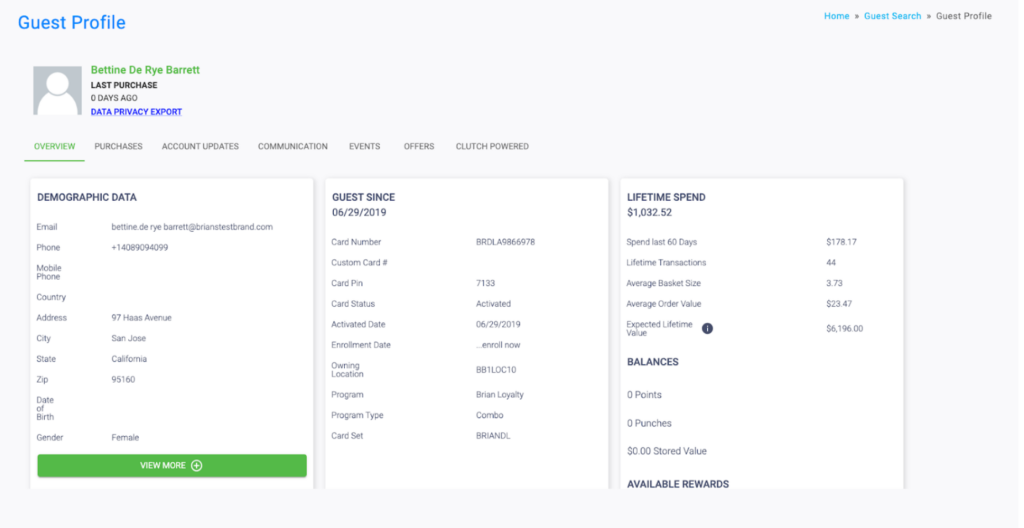
Review each customer’s information to determine if the activity or behavior is likely fraudulent. In table view, you’ll be able to see multiple customer names, as well as their Spend, Average Days Between Purchases, Number of Purchases, and Distinct Locations over the past 2 days.
If you want to do a deeper dive, you’ll be able to click on an account’s card number to view their customer profile. Here, you’ll be able to review much more information about them, such as their detailed transactional data, balances, and event history…including previous possible fraud identification and reviews. This information can also aide you in making a decision about the account.
Step 3
3.1 Once you’ve determined whether or not an account is fraudulent, you’ll need to select an option for the account. You’ll be able to mark each profile as either:
Account is not fraudulent for this particular review but is still eligible to be identified in the future.
Account should never be seen as fraudulent and should always be excluded. This option is commonly used for test accounts or employees known to shop a lot.
Account is an employee’s account being suspended due to fraudulent activity.
Account is a customer’s account being suspended due to fraudulent activity.
Account is being suspended due to fraudulent activity as a result of being hacked by an unauthorized user.
Account is being suspended due to being created for spam or phishing purposes.
3.2 Once you’ve made your selection, click the Apply button.
Marking an account as not fraudulent will simply remove them from the review tab. Marking an account as fraudulent will result in suspending their account in Virtual Terminal with the associated fraudulent reason. Existing rewards are still preserved on their account but can no longer be used by the account unless it is reactivated (more on that below).
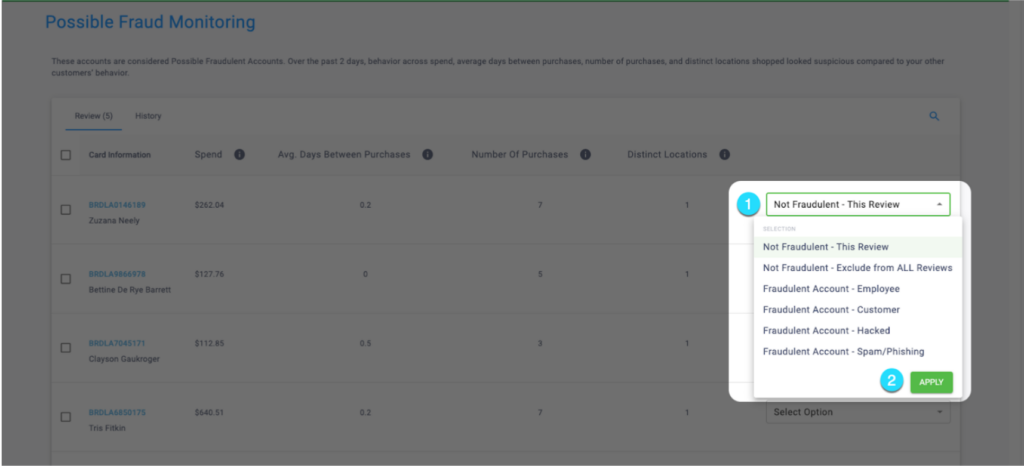
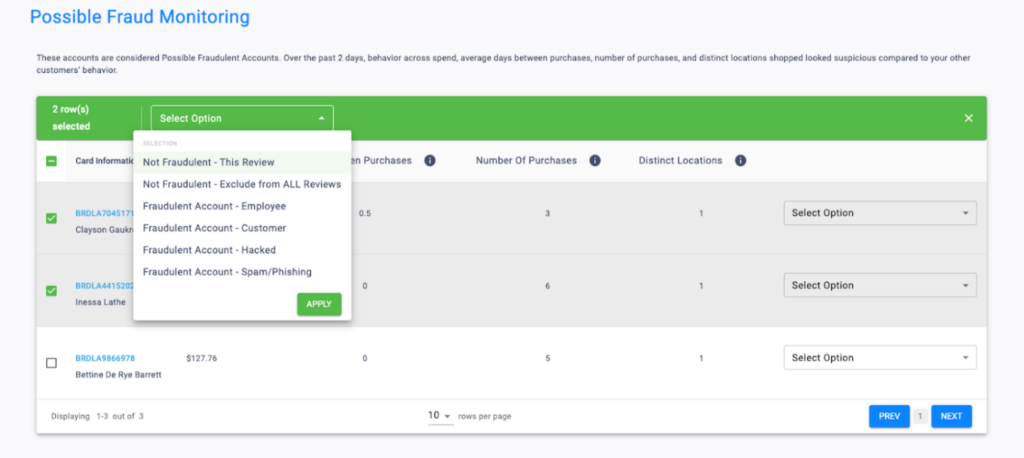
Step 4
If you stated that the account was fraudulent, then you will need to confirm your choice by selecting Yes in the pop-up. Remember that marking accounts as Fraudulent will automatically suspend their account to where they can no longer earn or redeem rewards. Accounts can be reactivated through Virtual Terminal if necessary. You can read the article here to learn how to suspend and unsuspend loyalty accounts.
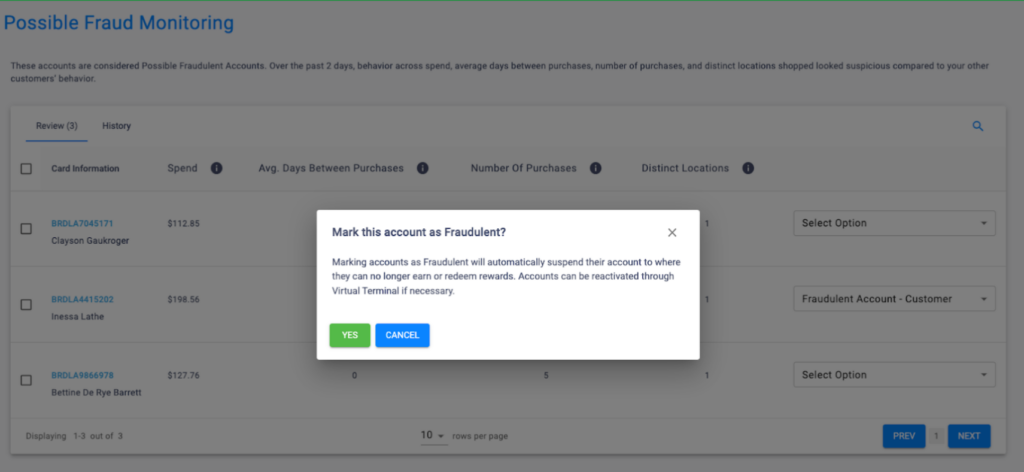
If you selected the account as Not Fraudulent, you will just get a pop-up message saying how the account was removed from this segment.
Step 5 (Optional)
You’ll be able to view the last 100 previously reviewed accounts in the History tab of the Possible Fraud Monitoring Tool. You’ll be able to see information previously shown on the Review section, as well as when the account was reviewed, who the account was reviewed by, and the decision made regarding the account.
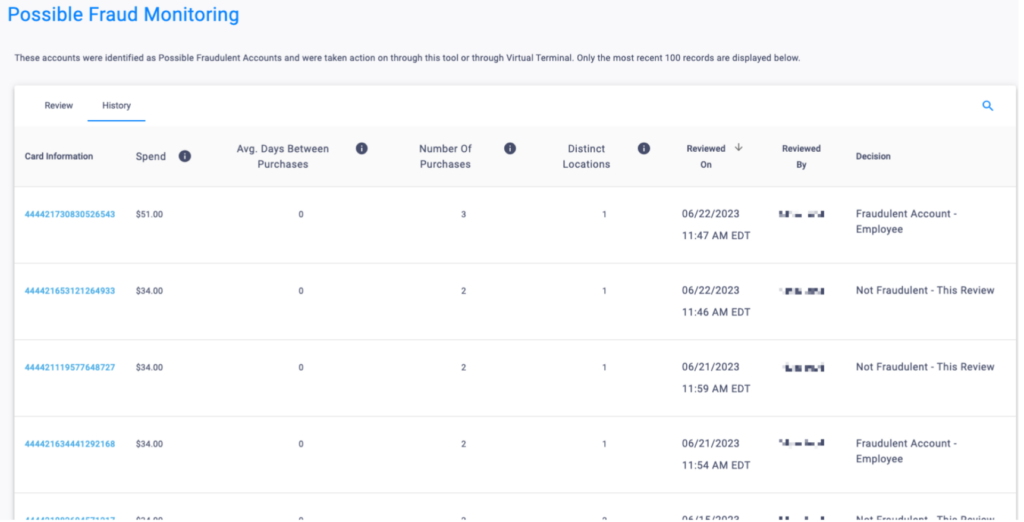
Step 6
Once you’ve reviewed all the identified Possible Fraudulent Accounts you’ll see a pop-up message letting you know that no possible fraudulent accounts were currently identified. Your goal should be to review all the accounts so this message appears!

Be sure to check back daily for new accounts that may have been identified!

